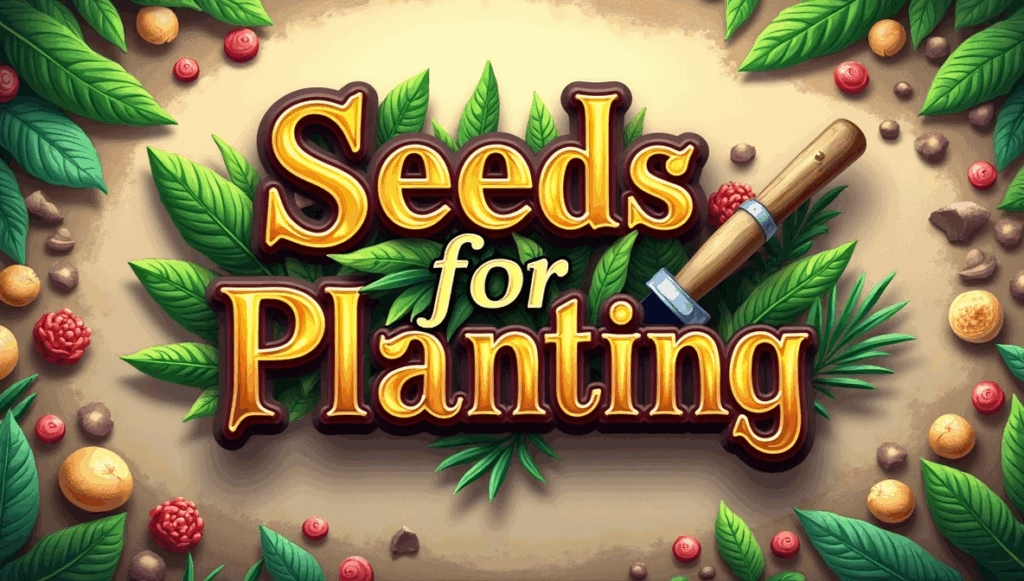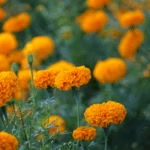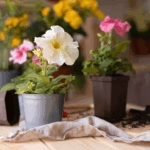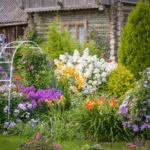Every lush garden, thriving farm, or fruit orchard begins with one simple element: seeds for planting. Choosing the right seeds not only determines plant health and yield but also decides whether your gardening journey will be a success or a struggle.
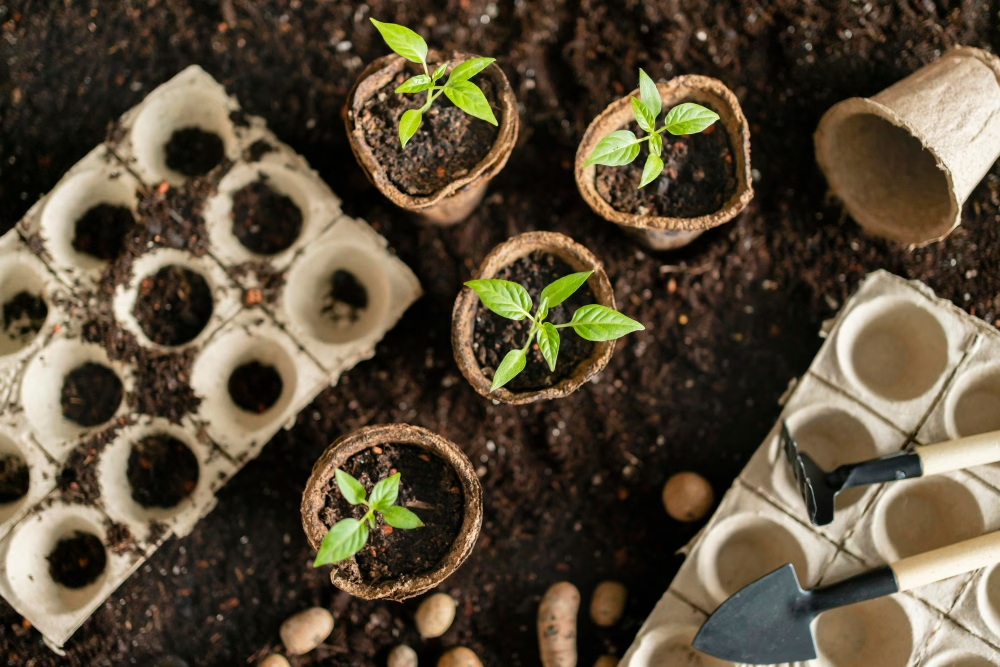
Today, gardening is no longer limited to farmers. With balcony gardening, terrace farming, and home-based organic gardens becoming popular, anyone can grow vegetables, herbs, or even exotic fruits at home.
In this guide, we’ll explore:
- Why choosing the right seeds matters
- The best vegetable, fruit, and medicinal seeds for planting
- How to grow sunflower, moringa, onion, cacao, black pepper, strawberry, neem, and banana seeds for planting
- Tips for organic gardening success
Related Post: Terrace Gardening Tips for Beginners in India
Why Quality Seeds for Planting Matter
High-quality seeds are the foundation of a productive garden. Poor-quality seeds may fail to germinate, result in weak plants, or attract diseases. On the other hand, certified and organic seeds ensure:
- High Germination Rate – More seeds sprout successfully
- Better Resistance – Seeds adapted to pests and diseases
- Improved Yield – Healthy plants produce more fruits/vegetables
- Climate Adaptability – Suitable for your region’s weather conditions
According to the Food and Agriculture Organization (FAO), seed quality is the single most important factor for achieving food security and sustainable farming.
Popular Types of Seeds for Planting
Let’s explore some of the most in-demand seeds for home gardeners and farmers.
1. Sunflower Seeds for Planting
Sunflowers are bright, cheerful, and incredibly easy to grow. Apart from their ornamental value, they provide edible seeds rich in healthy fats and proteins.
- Planting season: Summer to early monsoon
- Soil type: Well-drained sandy soil
- Care tips: Full sunlight, moderate watering, protection from strong winds
- Harvest: Seeds are ready in 70–100 days
Read Also: Best Gardening Tools for Beginners – Must-have tools
2. Moringa Seeds for Planting
Moringa (Drumstick tree) is a superfood powerhouse. Rich in vitamins, minerals, and antioxidants, it is often called the “Miracle Tree.”
- Planting season: Year-round in tropical climates
- Soil type: Loamy, well-drained soil
- Care tips: Requires minimal water, thrives in hot weather
- Uses: Leaves, pods, and seeds are edible and medicinal
The ICAR – Indian Council of Agricultural Research recommends moringa cultivation for both nutrition and income generation.
3. Onion Seeds for Planting
Onions are an essential kitchen ingredient, making them one of the most popular vegetable seeds for planting in India.
- Planting season: Rabi (Oct–Dec) and Kharif (Jun–Jul)
- Soil type: Fertile sandy-loam soil with good drainage
- Care tips: Requires 6–7 hours of sunlight, consistent watering
- Harvest: 100–120 days after sowing
Read More: Organic Vegetable Seeds for Balcony Garden in India
4. Cacao Seeds for Planting
If you’re a chocolate lover, growing cacao might sound like a dream. These seeds develop into cacao trees, producing cocoa beans used to make chocolate.
- Planting season: Best in warm, humid climates
- Soil type: Moist, nutrient-rich, well-drained soil
- Care tips: Needs shade during the initial growth stage, thrives in tropical conditions
- Harvest: 3–5 years after planting
5. Black Pepper Seeds for Planting
Known as the “King of Spices,” black pepper is native to India and one of the most valuable spice crops.
- Planting season: Monsoon months (June–August)
- Soil type: Fertile, well-drained loamy soil with organic manure
- Care tips: Grows well with support trees, requires partial shade
- Harvest: 2–3 years for pepper vines to mature
Other Link: Gardening Know How – Growing Black Pepper Plants
6. Strawberry Seeds for Planting
Strawberries are delicate fruits loved worldwide. Growing them from seeds requires patience but is rewarding.
- Planting season: Late winter or early spring
- Soil type: Sandy-loam, rich in compost
- Care tips: Needs cool climate, frequent watering, and sun exposure
- Harvest: 4–6 months after planting
7. Neem Seeds for Planting
Neem is a sacred and medicinal tree in India. Its seeds are used for organic fertilizers, pest control, and herbal medicines.
- Planting season: Early monsoon for better germination
- Soil type: Any well-drained soil
- Care tips: Low-maintenance, drought-tolerant
- Uses: Organic pesticides, skincare, traditional remedies
8. Banana Seeds for Planting
While cultivated bananas are propagated through suckers, wild species can be grown from seeds.
- Planting season: Spring and monsoon
- Soil type: Rich loamy soil, high in organic matter
- Care tips: Requires warm climate, high humidity, and regular irrigation
- Note: Wild banana seeds are hard and take time to germinate.
Tips for Successful Seed Planting
To ensure the best germination and healthy plant growth:
- Soak hard-coated seeds (like moringa or neem) in water overnight.
- Use organic compost or vermicompost to boost soil fertility.
- Maintain proper spacing to avoid overcrowding.
- Use natural pest repellents instead of harmful chemicals.
- Follow seasonal planting schedules for best results.
Read Also: Buy Organic Compost Online India
Seeds for Planting in Balcony & Terrace Gardens
Urban gardeners with limited space can still enjoy fresh produce by using container gardening or vertical gardening. Some of the best seeds include:
- Spinach, lettuce, and coriander (quick harvest)
- Chili and tomato seeds for small pots
- Herbs like mint, basil, and rosemary
- Strawberry and moringa for balcony pots
Where to Buy Seeds for Planting
When buying seeds, always prefer:
- Certified sellers with high germination rates
- Organic seeds for chemical-free farming
- Hybrid seeds for higher yield (but avoid low-quality duplicates)
Recommended sources:
- FAO Seed Services (for global guidelines)
- Krishi Vigyan Kendras (KVKs) in India
- Reputed online sellers like Agzora for home garden seeds
FAQs on Seeds for Planting
Q1. Which seeds are best for beginners?
Sunflower, onion, and moringa seeds are the easiest to start with.
Q2. Can I grow cacao seeds for planting in India?
Yes, but only in tropical regions like Kerala, Karnataka, and Tamil Nadu.
Q3. How long do neem seeds for planting take to germinate?
Usually 1–3 weeks under warm and moist conditions.
Q4. Are banana seeds edible?
Wild banana seeds are hard and not edible, but they can be used for propagation.
Q5. Which seeds grow fastest?
Spinach, coriander, sunflower, and moringa seeds germinate quickly.
Conclusion
Starting your green journey begins with selecting the right seeds for planting. From nutritious moringa seeds for planting to exotic cacao and strawberry seeds for planting, and from everyday onion seeds for planting to medicinal neem seeds for planting, each seed has its unique role.
For spice lovers, black pepper seeds for planting are rewarding, while those seeking beauty can grow sunflower seeds for planting. And if you’re adventurous, even banana seeds for planting can give you a wild, tropical touch.
Whether you’re gardening on a balcony, terrace, or farmland, choose certified, organic seeds and nurture them with love. Soon, you’ll enjoy the taste of fresh harvests and the joy of a thriving garden.

